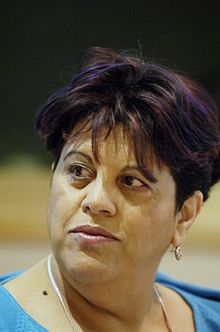
Palestinian Christians are a religious community of the Palestinian people consisting of those who identify as Christians, including those who are cultural Christians in addition to those who actively adhere to Christianity. They are a religious minority within the State of Palestine and within Israel, as well as within the Palestinian diaspora. Applying the broader definition, which groups together individuals with full or partial Palestinian Christian ancestry, the term was applied to an estimated 500,000 people globally in the year 2000. As most Palestinians are Arabs, the overwhelming majority of Palestinian Christians also identify as Arab Christians.
This timeline of the Israeli–Palestinian conflict lists events from 1948 to the present. The Israeli–Palestinian conflict emerged from intercommunal conflict in Mandatory Palestine between Palestinian Jews and Arabs, often described as the background to the Israeli–Palestinian conflict. The conflict in its modern phase evolved since the declaration of the State of Israel on May 14, 1948 and consequent intervention of Arab armies on behalf of the Palestinian Arabs.
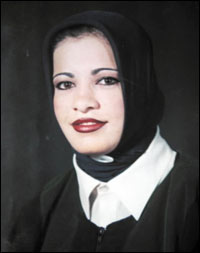
Hanadi Tayseer Abdul Malek Jaradat was a Palestinian from Jenin, who blew herself up on Saturday, 4 October 2003 in a suicide attack on Maxim restaurant, a Haifa restaurant co-owned by the same Jewish and Arab families for more than 40 years. She killed 21 Jewish and Arab Israelis, and injured 51 other people. Among the dead were four Israeli children, including a two-month old infant, and five Arabs. She had been recruited by Islamic Jihad.

Israeli Arabs, colloquially "48-Arabs", most of whom now prefer the term Palestinian citizens of Israel according to most sources, are the largest ethnoreligious minority in Israel. They comprise a diverse community of Israeli citizens who were or are descended from Palestinian citizens before 1948, bilingual in Palestinian Arabic and Hebrew, and who self-identify in a wide range of intersectional civic, national, and religious identities.

The October 2000 protests, also known as October 2000 events, were a series of protests in Arab villages in northern Israel in October 2000 that turned violent, escalating into rioting by Israeli Arabs, which led to counter-rioting by Israeli Jews and clashes with the Israel Police and ending in the deaths of 13 Arab demonstrators and 1 Israeli Jew.

Amal Murkus is a Palestinian singer. Her post-modern music style has a variety of Mediterranean influences. Her first album, Amal, was released in 1998, and her second, Shauq, in 2004. Her songs take inspiration by Palestinian folklore, traditional Arabic heritage, and pop music elements, and express the struggle against the marginalization and exclusion that Arab Palestinian culture feels.

Homosexuality in the Palestinian territories is considered a taboo subject; lesbian, gay, bisexual, and transgender (LGBT) people experience persecution and violence. There is a significant legal divide between the West Bank and the Gaza Strip, with the former having more progressive laws and the latter having more conservative laws. Shortly after the Jordanian annexation of the West Bank in 1950, same-sex acts were decriminalized across the territory with the adoption of the Jordanian Penal Code of 1951. In the Egyptian-occupied Gaza Strip and under Hamas' rule, however, no such initiative was implemented.

The University of Haifa is a public research university located on Mount Carmel in Haifa, Israel. Founded in 1963, the University of Haifa received full academic accreditation in 1972, becoming Israel's sixth academic institution and the fourth university. The university has the largest university library in Israel. As of 2019, approximately 18,000 students were enrolled at the University of Haifa. Among Israeli higher education institutions the University of Haifa has the largest percentage (41%) of Arab-Israeli students.
Following are timelines of the history of Ottoman Syria, taken as the parts of Ottoman Syria provinces under Ottoman rule.
The Jewish-Arab Center (JAC) is a multidisciplinary research institute in the University of Haifa in Haifa, Israel, active since 1972. The head of the center since 2014 is Prof. Rassem Khamaisi.
The Haifa Women's Coalition is a coalition of four women's organizations in the Israeli city of Haifa: Isha l'Isha – Haifa Feminist Center, Kayan – Feminist Organization, Haifa Rape Crisis Center, and Aswat. The coalition works for women's rights awareness and supports women victims of domestic and sexual violence. Jewish and Arab women in Israel work under one roof, creating a contact point for Northern Israeli women of all backgrounds.

Al-Ittihad is an Arabic language daily newspaper in Israel. Based in Haifa, it was established in 1944 and is owned by the Israeli Communist Party. It is the oldest Arabic media outlet in Israel and considered the most important. The newspaper is currently edited by Aida Touma-Suleiman.
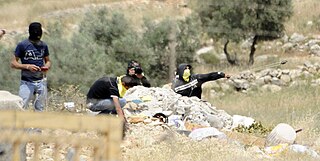
Palestinian stone-throwing refers to a Palestinian practice of throwing stones at people or property. It is a tactic with both a symbolic and military dimension when used against heavily-armed troops. Proponents, sympathizers, as well as analysts have characterized stone throwing by Palestinians as a form of "limited", "restrained", "non-lethal" violence. The majority of Palestinian youths engaged in the practice appear to regard it as symbolic and non-violent, given the disparity in power and equipment between the Israeli forces and the Palestinian stone-throwers, with many considering it a method of deterring Israeli military forces and civilians from the occupation of Palestinian lands. The state of Israel considers the act to be criminal, on the grounds that it is potentially lethal. In some cases, Israelis have argued that it should be treated as a form of terrorism, or that, in terms of the psychology of those who hurl stones, even in defense or in protest, it is intrinsically aggressive.
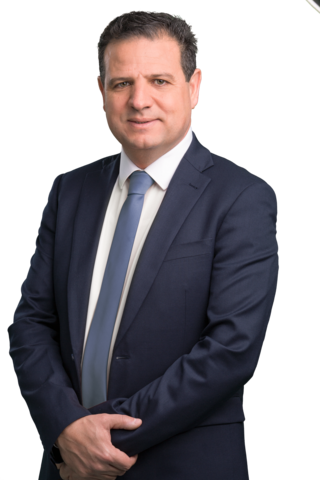
Ayman Odeh is a Palestinian Israeli Arab lawyer and politician. He is a member of Knesset and leader of the Hadash party.

Aida Touma-Suleiman is an Israeli Arab journalist and politician. She has been a member of the Knesset for Hadash since 2015.
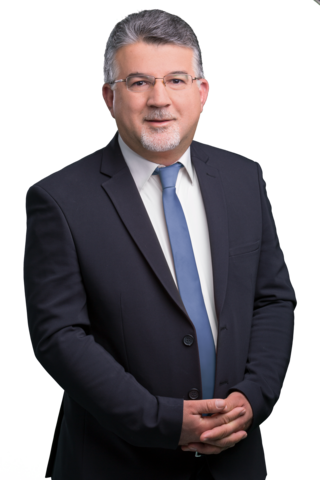
Yousef Taysir Jabareen is an Israeli Arab academic and politician. He served as a member of the Knesset for Hadash and the Joint List between 2015 and 2021.

Aswat - Palestinian Feminist Center for Gender and Sexual Freedoms, also known as Aswat, is an Israel-based feminist organization that advocates for lesbians and other LGBT women in the Palestinian community. The group was founded in 2003, making it the first Palestinian organization for lesbians. It was initially membership-based, but has since transitioned to a movement-based structure. It is based in Haifa, Israel.

The Al-Tufula Center is a women's center in Nazareth which focuses on early childhood education and women's rights. It was established in 1989, and its founder and director is Nabila Espanioly.
